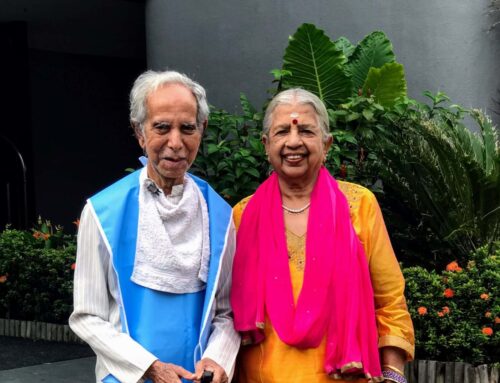It’s never too late for an insincere declaration of love
Two weeks ago, David Pogue, the technology columnist for The New York Times, created an “epic marriage proposal” for his girlfriend, which he later uploaded to Vimeo. As I watched the seven-minute video, a bitter taste rose in my throat.
Here is how Pogue describes his proposal: “On August 15, 2012, I proposed to the love of my life. I made a fake movie trailer – a thinly veiled version of our love story. I persuaded the movie theatre at a summer resort to play it before a movie we went to see. Both of our families were there to see it. I hid a video camera to capture her reaction (it was in a ficus plant next to the screen).”
At the end of the video, Pogue gets down on his knees and proposes to his girlfriend, who immediately shouts “yes”.
The marriage proposal: the stuff of dreams, the stuff of nightmares. When to do it? Where to do it? How to do it? Or in my case, how not to do it?
You see, I had an arranged marriage, an event about as romantic as senior citizens removing their dentures together as they share an all-you-can-eat salad at a cafe.
Arranged marriages occur pretty much everywhere east of the Bosphorus. In my case, my horoscope was matched with “prospective grooms”, as males of the species are called. Then the two families met and decided whether they liked each other. Only then were we allowed to meet.
So I first met my husband in a crowded room with a dozen or so gawking relatives around us. We talked about pizza and philosophy, and later everyone in my family analysed the flaws of the 28-year-old “boy”. Was he cross-eyed? Was he limping? Did he have a lisp?
Spies in our family were strategically placed throughout the living room to notice these minute details as my future husband and I made casual conversation.
He eventually proposed to me over the phone, which in itself was unusual. The usual method was to individually question the boy and girl after the meeting to gauge their reactions. It was the family that usually made the proposal.
My husband lived in America at the time and was therefore forgiven for some western predilections.
This all happened about 20 years ago, and at the time I accosted my grandfather. Why couldn’t the families simply leave it to us? I asked. My grandfather scratched his non-existent beard thoughtfully. “Freud called this whole notion of individual autonomy delusional,” he said. “The human race is conditioned to belong to a family, a community.”
Where was he taking this, I wondered. With my grandfather, you never could tell.
A wedding, said my grandfather, was the coming together of two families, two communities. The bride and groom were symbols of this union, epitomising a communal harmony. My father spouted similar logic.
Indian marriages are not left to chance. They are carefully engineered with the pair’s horoscopes matched for 10 different compatibilities: health, children, finance, harmony in the bedroom, good social life, quality of life, prosperity of the progeny, avoiding widow- or widower-hood, no health afflictions and, lastly, mutual attraction to the point of inseparability.
I wish I could tell you that my grandfather and father converted me to the cause of arranged marriages. But no. Even though I am happily married, I view grand declarations of love with the hopeless tears of a romantic.
After watching Pogue’s epic proposal, I marched up to my husband, who was engrossed in watching a tennis match. How come you didn’t fall on your knees and propose to me, I demanded.
My husband took one look at my face and did the only thing that a very married, desperate-to-watch-the-game husband can do. He fell on his knees. “Darling, marry me,” he said with as much of a theatrical flourish as he could muster. But his eyes were looking past my shoulder. They were glued on the television set behind me.
Shoba Narayan is the author of Monsoon Diary and Return to India



As usual, nicely written. Me and my wife loved your article ‘returning to India’ you wrote few years back. Thanks for haring.
Cheers,
Shrikant
Thank you. Now, I have a book on that topic.